Many articles have been written on India’s growth potential, following the slowdown in economic momentum in the last couple of years. This is myopic as the Indian growth remains robust; and the economic growth rate is likely to accelerate from 2012-13 onwards.
Before the global financial crisis of 2008, the Indian economy had been growing at well over 9 percent. The growth rate slipped to 6.7 percent in 2007-08, but recovered swiftly to 8.4 percent in 2008-09 and stayed at that level the following year as well. Since then, growth has declined to 6.5 percent in 2011-12 and likely 6 percent in the current fiscal year that will conclude in March 2013. You cannot blame an external observer for concluding that Indians have hobbled in their rope trick gone wrong and it is better to wait and watch, if not keep off. But those who let appearance overwhelm their appreciation of the reality are likely to miss the strongest growth story of the next two decades.
The government’s announcement in September last year of a slew of reform measures, allowing foreign investment in multi-brand retail (single-brand retail had already been opened up, although with conditions that are gradually being diluted), allowing foreign airlines to invest up to 49 percent in Indian airlines, raising the foreign investment cap in insurance to 49 percent, opening up some forms of distributing telecast signals to foreign capital, etc. Hopefully, this could well be the turning point for the economy. Not so much because these decisions in themselves break dramatic new ground, but because it signalled political decisiveness, key for India to break her shackles of policymaking inertia.
India has had minority or coalition governments continuously since 1989, except for a brief two-and-a-half years early in the ’90s. Therefore, making policy has been a function of not just reformist intent but of political management of coalitions as well. In this area, the present government had been seen as having a deficit bigger than the fiscal deficit. But the September reforms signalled boldness: A key ally with the second largest contingent of legislators in Parliament broke off in protest at opening up retail and left the ruling coalition but the political leadership was prepared for that exit and roped in external support. The government has been taking a number of measures that require considerable political courage. It has auctioned telecom spectrum, passed reforms to banking regulations that will allow the central bank, which also functions as the banking regulator, to issue new licences, initiated a system of direct cash transfer of subsidies and increased the prices of petroleum fuels, in order to reduce the subsidy burden on the fisc. The expectation is that more reforms would be announced when the annual budget is presented on the last day of February.
While this much is evident to anyone who follows the news on India, there are a few changes in the political economy that receive little attention but have enormous significance for accelerating growth.
The most important change is that in elections to the states (India has 28 provinces with their own elected governments), the people have made it clear that they are no longer content with empty promises or mere offer of voice and identity, as they had been in the past. Leaders are expected to deliver governance and development. Those who rise to this expectation are rewarded with another term in office, and those who do not are voted out.
Politics in India has traditionally been a matter of patronage. The new political economy is forcing the leaders to think of building expressways, new towns, forging policies for releasing land for industry and make schools teach and staff hospitals. Every major state now holds annual investor meets to draw in foreign investment.
The mass upheaval over corruption is forcing the system to adopt unprecedented transparency in the allocation of natural resources. A new mining bill in the works will adopt transparent auctions for mines. Pressures are mounting to dilute, if not scrap, public monopoly in coal mining, which has been a major factor in the shortage of fuel that has been keeping 50,000 MW of power generation capacity idle in the country. A new ruling by a central appellate tribunal now ensures that every state level electricity regulator would revise power tariffs at least once every year. Refusal by these regulators to pass on the higher cost of imported coal has been one reason behind the fuel shortage in the power sector.
The good news is that India today has 50,000 MW of idle capacity. In the absence of enough power to supply rural areas in the daytime (power is despatched for a few hours at night so that farmers can run their pumps for irrigation) has meant that very little rural industry has been possible till now. Once the fuel shortage has been sorted out, rural India would be ripe for structural diversification, new agro processing industry absorbing underemployed manpower and farmers gaining from new climate-controlled warehouses and better prices through local procurement by local industry for local processing. State-owned Bharat Broadband Corporation is busy rolling out fibre-optic cable to 250,000 large villages (India has a little over 600,000 villages in total).
( T K Arun is the Editor, Opinion,
at The Economic Times, New Delhi)
Indian economy poised for takeoff, growth robust
Indian economy poised for takeoff, growth robust
How Saudi companies are redefining corporate responsibility with ESG leadership

- ESG integration is transforming industries as Saudi firms leverage AI, blockchain, and biotech to drive impact
- Private companies like SAWACO and WAYAKIT are proving that profitability and sustainability can thrive together
JEDDAH: Saudi companies across multiple industries are increasingly integrating environmental, social, and governance principles into their corporate strategies, driving sustainable growth while balancing environmental stewardship, community impact, and corporate responsibility.
This strategic shift aligns with Saudi Arabia’s Vision 2030 roadmap — a transformative economic diversification plan — and its ambitious 2060 net zero emissions target, reinforcing the nation’s position as a sustainability leader.
SAWACO Water Group exemplifies this transformation, embedding sustainability into its core operations.
“Sustainability is not just a goal; it’s a responsibility,” CEO Nizar Kammourie told Arab News, emphasizing the company’s alignment with Vision 2030’s focus on environmental and social progress.
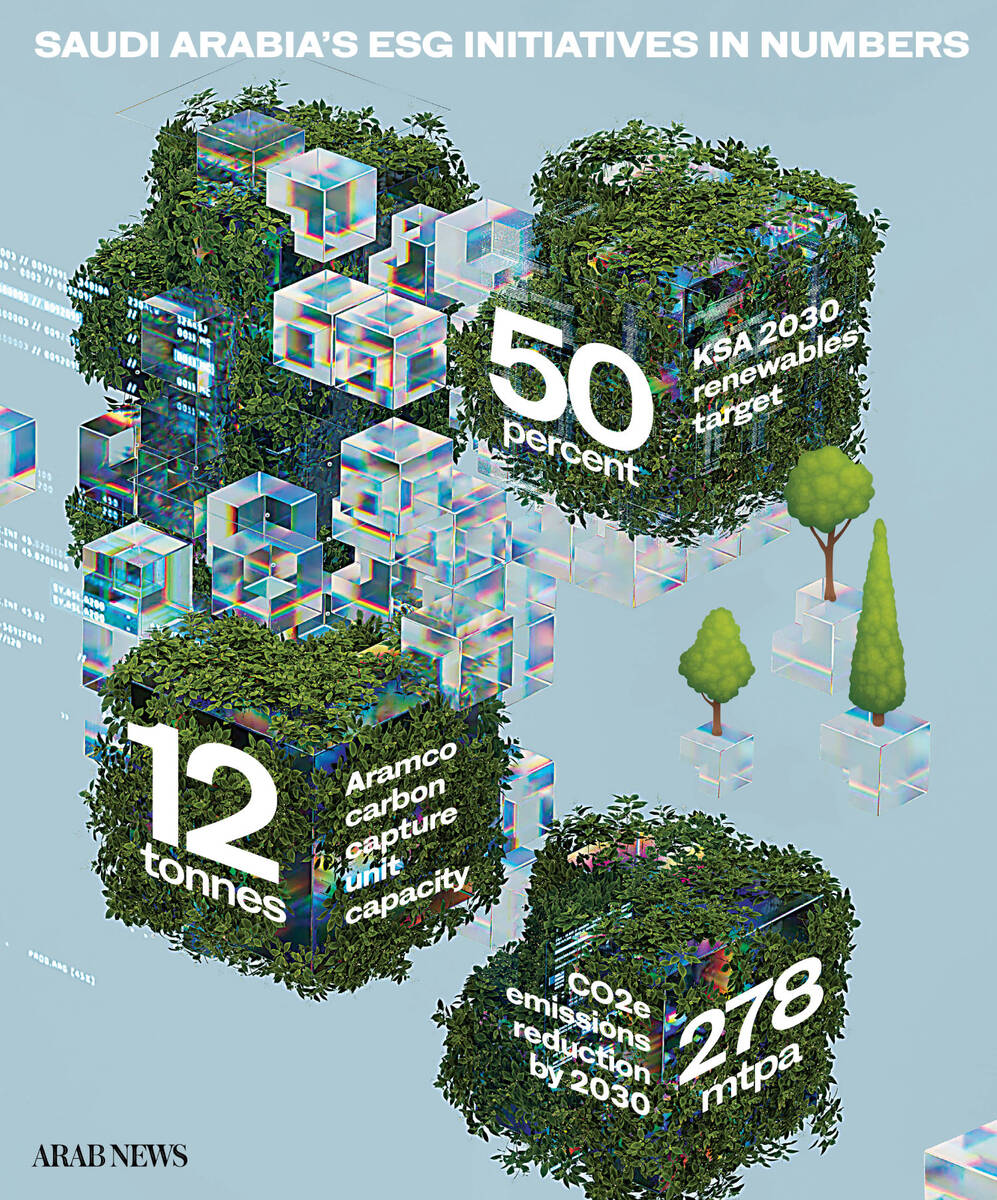
He added: “At SAWACO, we integrate ESG into every aspect of our operations, from optimizing resource efficiency to ensuring transparent governance and community engagement.”
Underpinning this commitment, SAWACO has implemented advanced operations intelligence software to enhance energy efficiency in desalination plants.
“We are leveraging cutting-edge technology to reduce power and chemical consumption while extending the life cycle of our assets,” said Kammourie.
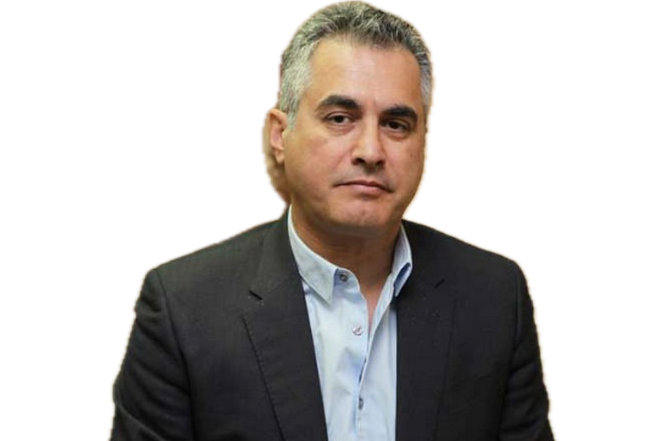
The company also tracks carbon emissions through its Remedium Platform, which supports data-driven reduction targets.
“Accurate carbon accounting allows us to set tangible, data-driven targets for reducing our environmental footprint, ensuring our growth remains responsible and sustainable,” he added.
To address resource optimization, SAWACO has partnered with a US-based firm to pioneer brine minimization technology.
“Water is one of our most precious resources, and we are committed to maximizing its use,” said Kammourie.
“Our innovative brine minimization system enhances freshwater recovery from seawater while significantly reducing brine discharge, preserving marine ecosystems and supporting coastal livelihoods.”
Governance reforms further solidify SAWACO’s ESG leadership. A dedicated committee oversees alignment with international sustainability standards such as the UN Sustainable Development Goals.

“Ethical governance is the foundation of a sustainable business,” said Kammourie “By integrating real-time data analytics, third-party audits, and stakeholder engagement into our decision-making process, we ensure accountability at every level.”
He added: “Sustainability must be measured, not just discussed. That’s why we also integrate ESG metrics into performance reviews, making it a part of our company culture rather than just a corporate initiative.
“We are not just providing water — we are safeguarding the future of water sustainability in Saudi Arabia. Our goal is to drive meaningful change that aligns economic success with long-term sustainability.”
These efforts reflect broader national momentum, as Saudi businesses bridge profitability and planetary stewardship to set new benchmarks for ESG leadership in emerging markets.
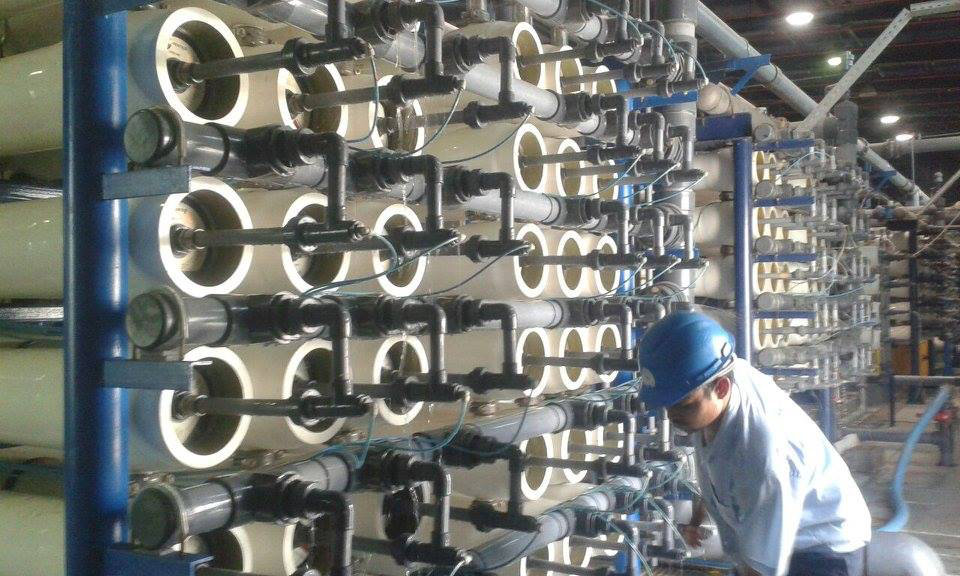
Similarly, Luisa Javier, CEO of WAYAKIT, highlighted how her women-led biotechnology company has embedded ESG into its DNA, transforming hygiene solutions in aviation, transportation, and facilities management.
“We are not just creating products; we are building solutions that have a measurable environmental and social impact,” she told Arab News.
WAYAKIT’s flagship disinfectant eliminates 99.999 percent of viruses and bacteria in just 30 seconds using 93 percent biodegradable components.
By replacing harmful quaternary ammonium compounds with biodegradable nano-modified citric acid in aircraft cleaning processes, the company says it has reduced environmental impact by 94 percent.

In addition, its environmental footprint tracker measures progress in energy efficiency, water conservation, pollution reduction, and health improvements.
“Sustainability isn’t just about compliance — it’s about innovation,” said Javier. “We have to rethink traditional approaches and develop solutions that align with the future.”
WAYAKIT also integrates ESG principles into its governance and transparency measures. Its women-led C-suite strengthens decision-making diversity, while blockchain technology safeguards sustainability metrics, preventing greenwashing and ensuring accurate reporting.
“Authenticity matters,” said Javier. “Every sustainability claim we make is backed by rigorous third-party laboratory testing. We are setting a new standard for how biotech companies can be both profitable and responsible.”
DID YOU KNOW?
• The Kingdom is aiming for net zero carbon emissions by 2060, embedding ESG principles in national initiatives like Green Riyadh.
• In 2021, the Saudi Stock Exchange introduced ESG disclosure guidelines, mandating listed companies prioritize transparency.
• Saudi Electricity Co., Almarai, and Saudi Telecom Co. have embedded ESG guidelines, issuing green bonds and improving governance.
Community engagement is another cornerstone of WAYAKIT’s ESG strategy. With 70 percent of its workforce consisting of women, the company provides technical training in biotechnology and leadership development to foster career advancement for Saudi women.
“Empowering women in STEM is not just a mission — it’s a responsibility,” said Javier. “Our workforce is a reflection of what Saudi Vision 2030 aims to achieve: a thriving, innovative economy where women play a central role.”
This momentum is part of a broader national trend. A 2023 report by Saudi Arabia’s sovereign wealth fund, PIF, highlighted how Saudi organizations, particularly those within its portfolio, are spearheading ESG awareness and implementation.
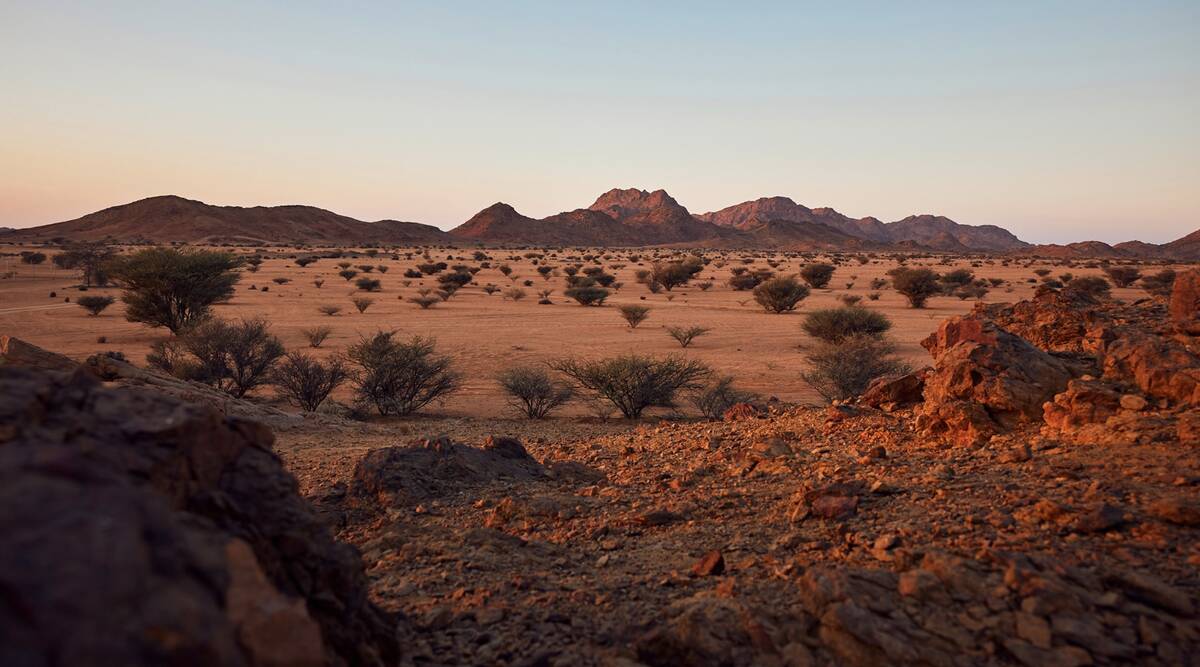
The Saudi Green Initiative, launched by Crown Prince Mohammed bin Salman, supports this shift with $187 billion in investments across more than 60 programs to advance the green economy.
Through large-scale investments in green initiatives, innovative carbon reduction strategies, and community-focused programs like those led by SAWACO and WAYAKIT, Saudi businesses are proving that profitability and sustainability can coexist.
Collectively, these efforts set a new benchmark for ESG leadership in emerging markets while positioning Saudi Arabia as a global leader in sustainable development.
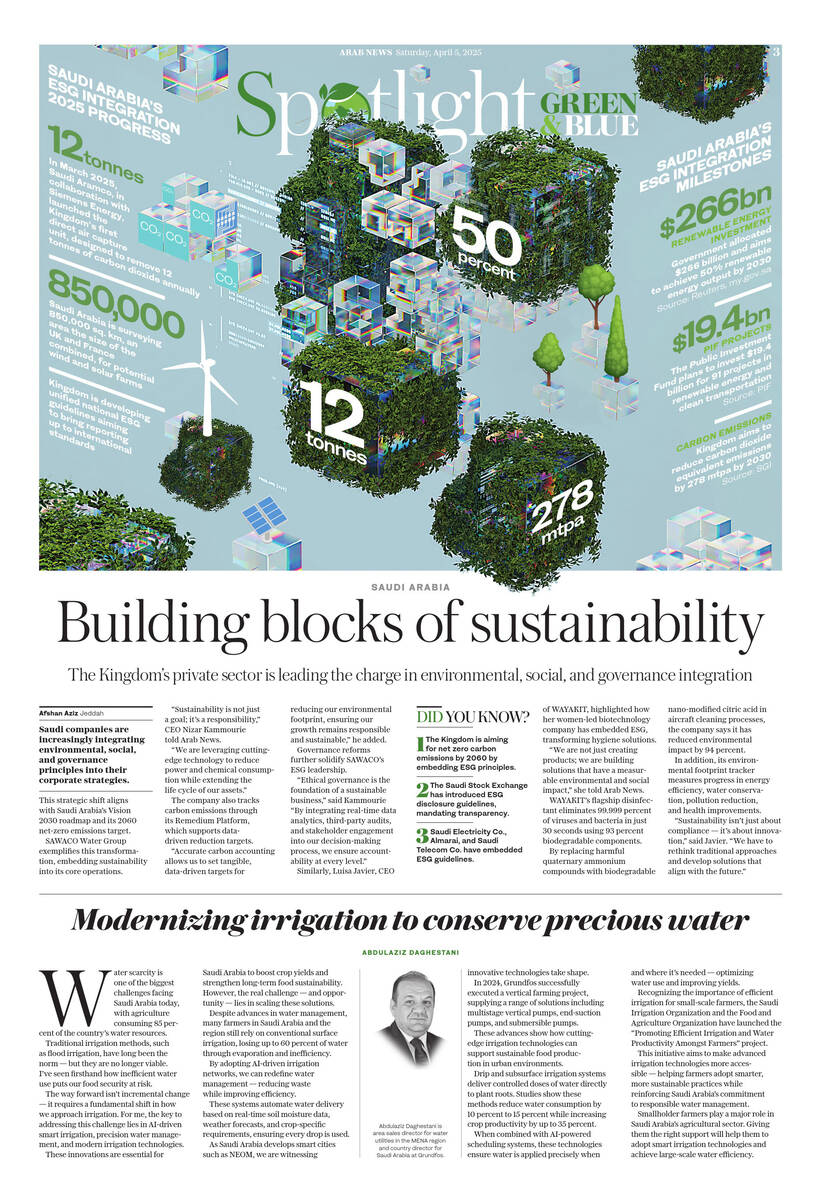
Orchestra celebrates soundtracks of popular video games at Saudi Arabia’s Ithra

- Concert features symphonic arrangements, in-game HD visuals
DHAHRAN: It is “game on” at the King Abdulaziz Center for World Culture after it opened its doors to an event on Thursday.
The orchestral performance, which is being held nightly at the Ithra Theater — with two shows scheduled for Friday — celebrates the soundtracks of popular video games and attempts to breathe new life into them.
The concert features symphonic arrangements paired with in-game HD visuals and exclusive concept art from popular titles such as League of Legends, Overwatch, Assassin’s Creed, and The Witcher 3.

Sergey Smbatyan, founder of the Armenian State Symphony Orchestra and the artistic director and principal conductor since 2005, was on hand to lend context and commentary between the scores on opening night.
He told the crowd before the show: “If you’re not a gamer, what I want you to do is to imagine that you’re in a museum — an art museum — but instead of a curator telling you about the images that you’re going to see on this huge screen, let these musicians tell you that exact story.
“Tonight there is no right time to clap; there is no wrong time to clap. If you hear something you like from these guys (gesturing to the orchestra behind him on stage), let us know.
“We're going to start off tonight with role-play games, or what are known as RPGs, where players assume the roles of characters in a fictional setting. The game is focused on interactive storytelling, decision-making and strategy.”
Dhahran resident Paul Blay took his two daughters Sylvia, 11, and Celeste, 10, to the show.
Blay, who is a father of six, told Arab News: “I get emails about Ithra events and saw this one and I thought it would be fun for me and the girls to go to. Like with anyone that you love, I shared the things I love with them.”
The Blay family moved to the Kingdom last year and were keen to attend an event that merged gaming with music.
Celeste told Arab News: “I really like video game music; the music is really pretty and I like listening to that. It is kind of what motivated me to come here. And, also, my dad likes video games.”
The older Blay sisters have both taken music lessons and play multiple instruments, including the piano, the harp and the clarinet.
Their father said: “Some of the best music that’s being composed nowadays is for movies and video games. I expected it to be really high quality and good (at Ithra).”
The event featured music from Guild Wars 2, World of Warcraft, The Witcher 3 and Assassin’s Creed 2, among many others.
The last show takes place on April 5, with tickets starting at SR200 ($53), available at the venue or via the Ithra website.
Exhibition honoring Prince Khaled Al-Faisal inaugurated in Jeddah

- The exhibition chronicles Prince Khaled’s life and contributions as a statesman, individual and poet through visual installations
MAKKAH: Makkah Deputy Gov. Prince Saud bin Mishal bin Abdulaziz launched the “Love of Khaled Al-Faisal” exhibition as part of Jeddah Season festivities.
The ceremony was attended by Prince Turki bin Faisal, alongside several relatives of Makkah Gov. Prince Khaled Al-Faisal.
The delegation toured the exhibition, housed at the Abadi Al-Johar area in Jeddah, which runs from April 3-8 and welcomes visitors daily from 4 p.m. to 11 p.m.
The exhibition chronicles Prince Khaled’s life and contributions as a statesman, individual and poet through visual installations.
Saudi Arabia’s Hail poppy reserve attracts thousands of tourists

- Since opening in 2022, the reserve, which covers 10,000 sq. meters, has drawn thousands of domestic and foreign visitors
HAIL: With its vibrant array of wildflowers framed by golden sand dunes and majestic mountains, the Poppy Reserve in Al-Khattah is one of the Hail region’s most captivating attractions.
Since opening in 2022, the reserve, which covers 10,000 sq. meters, has drawn thousands of domestic and foreign visitors, particularly during holidays, Eid and the spring season.
The attraction enchants guests with its sweeping fields of poppies, perfectly balanced in form and color. As the sun sets, the golden rays cast a warm glow over the landscape and create a natural wonder.
This striking beauty enhances the region’s reputation for breathtaking scenery and offers a unique experience.
Saudi Arabia concludes participation in Bologna Book Fair

- The Saudi pavilion experienced significant engagement from publishers and international literary agencies, Al-Bassam added
BOLOGNA: Saudi Arabia concluded its participation in the Bologna International Book Fair 2025, held in Bologna, Italy, from March 31 to April 3.
The event introduced visitors to Saudi heritage through a comprehensive cultural experience.
Bassam Al-Bassam, general manager of publishing at the Saudi Literature, Publishing, and Translation Commission, said the commission organized various initiatives to enhance the publishing and translation industry in the Kingdom and showcase the Saudi cultural landscape.
The Saudi pavilion experienced significant engagement from publishers and international literary agencies, Al-Bassam added.
By participating in international book fairs, the Kingdom aims to enhance its cultural presence on a global scale and create new opportunities to promote Saudi culture both regionally and internationally.



















